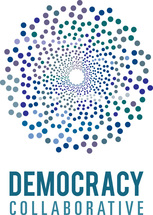Gathering #2: Learning Action/Lab Panelists and Site Visits
Panelists and Guests
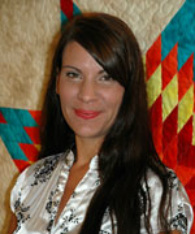
Chrystel Cornelius
Executive Director, First Nations Oweesta
[email protected]
Chrystel Cornelius has worked with Native communities for most of her professional career, and has more than 14 years of experience working in the economic development field with Native communities. She is an enrolled member of the Oneida Nation of Wisconsin and is also of Chippewa decent. As a former tribal planner for seven years for the Turtle Mountain Band of Chippewa, she has extensive experience in tribal government structures and coordinating with various government and private funding entities. She has developed and sustained numerous economic development initiatives for the Tribe including wind energy initiatives, manufacturing contracts, as well as infrastructure projects for enhancing the overall capacity for reservation private and tribal business development. She was also the former executive director of the Turtle Mountain CDFI from its inception in 2006, bringing the institution to full certification status issued by the U.S. Treasury Department. Chrystel has over 10 years’ experience in providing training within Native communities and is a certified trainer and presenter in various asset building strategies and curriculums, and also serves as a congressional advocate for Native financial literacy efforts. Chrystel is the Executive Director for First Nations Oweesta Corporation and also assists with training and technical assistance measures with Native CDFIs throughout the United States. She assists facilitating with entrepreneurial trainings and methods for integrated community participation, financial literacy training and overall development of asset building endeavors for tribal communities. Chrystel attained a bachelor’s degree in business management from the University of Mary in Bismarck, North Dakota.
Executive Director, First Nations Oweesta
[email protected]
Chrystel Cornelius has worked with Native communities for most of her professional career, and has more than 14 years of experience working in the economic development field with Native communities. She is an enrolled member of the Oneida Nation of Wisconsin and is also of Chippewa decent. As a former tribal planner for seven years for the Turtle Mountain Band of Chippewa, she has extensive experience in tribal government structures and coordinating with various government and private funding entities. She has developed and sustained numerous economic development initiatives for the Tribe including wind energy initiatives, manufacturing contracts, as well as infrastructure projects for enhancing the overall capacity for reservation private and tribal business development. She was also the former executive director of the Turtle Mountain CDFI from its inception in 2006, bringing the institution to full certification status issued by the U.S. Treasury Department. Chrystel has over 10 years’ experience in providing training within Native communities and is a certified trainer and presenter in various asset building strategies and curriculums, and also serves as a congressional advocate for Native financial literacy efforts. Chrystel is the Executive Director for First Nations Oweesta Corporation and also assists with training and technical assistance measures with Native CDFIs throughout the United States. She assists facilitating with entrepreneurial trainings and methods for integrated community participation, financial literacy training and overall development of asset building endeavors for tribal communities. Chrystel attained a bachelor’s degree in business management from the University of Mary in Bismarck, North Dakota.
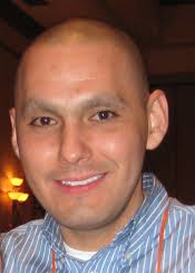
Raymond Foxworth
Senior Program Officer, First Nations Development Institute
[email protected]
Raymond Foxworth serves as a senior program officer for First Nations Development Institute’s policy department. As a senior program officer, Raymond participates in a range of research projects involving Native asset valuation, including Indian land, financial assets, and natural resources. His primary responsibilities include conducting field research and the gathering and analyses of primary and secondary data from interviews, surveys, statistical sources, academic research and other resources. Prior to joining First Nations, Raymond served as a project officer for the American Indian College Fund in Denver, Colorado. He holds a B.A. and M.A. in political science, and is
currently a doctoral student in the department of political science at the University of Colorado at Boulder. Raymond is a citizen of the Navajo Nation, originally from Tuba City, Arizona.
Senior Program Officer, First Nations Development Institute
[email protected]
Raymond Foxworth serves as a senior program officer for First Nations Development Institute’s policy department. As a senior program officer, Raymond participates in a range of research projects involving Native asset valuation, including Indian land, financial assets, and natural resources. His primary responsibilities include conducting field research and the gathering and analyses of primary and secondary data from interviews, surveys, statistical sources, academic research and other resources. Prior to joining First Nations, Raymond served as a project officer for the American Indian College Fund in Denver, Colorado. He holds a B.A. and M.A. in political science, and is
currently a doctoral student in the department of political science at the University of Colorado at Boulder. Raymond is a citizen of the Navajo Nation, originally from Tuba City, Arizona.
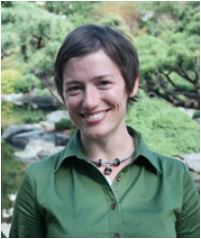
Mickki Langston
Executive Director, Mile High Business Alliance
[email protected]
Originally hailing from Southwest Kansas' rural ranching and agriculture community, Mickki has called Colorado home since 1999. Recognizing the need to reclaim our power to envision, create and share community wealth, Mickki co-founded the Mile High Business Alliance in 2007. Currently serving as Executive Director, Mickki combines her passion for healthy communities with her varied experience as a small business owner. Over time, her role at MHBA has evolved to one of advocacy on behalf of small businesses, collaboration-building with local partners, and empowerment of MHBA's small-but-mighty staff. Her leadership supports the fulfillment of the business alliance's mission to build a more resilient, connected and healthy local economy. Mickki lives in the Baker neighborhood of Denver where she gets to frequent unique local businesses, grow a few vegetables and nurture her other passions, including cooking great dinners, canning delicious pickles, and supporting women as a childbirth educator and doula.
Executive Director, Mile High Business Alliance
[email protected]
Originally hailing from Southwest Kansas' rural ranching and agriculture community, Mickki has called Colorado home since 1999. Recognizing the need to reclaim our power to envision, create and share community wealth, Mickki co-founded the Mile High Business Alliance in 2007. Currently serving as Executive Director, Mickki combines her passion for healthy communities with her varied experience as a small business owner. Over time, her role at MHBA has evolved to one of advocacy on behalf of small businesses, collaboration-building with local partners, and empowerment of MHBA's small-but-mighty staff. Her leadership supports the fulfillment of the business alliance's mission to build a more resilient, connected and healthy local economy. Mickki lives in the Baker neighborhood of Denver where she gets to frequent unique local businesses, grow a few vegetables and nurture her other passions, including cooking great dinners, canning delicious pickles, and supporting women as a childbirth educator and doula.
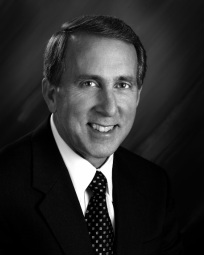
Thomas Ogaard
President and CEO, Native American Bank
[email protected]
Mr. Ogaard is currently President and CEO of Native American Bank, NA headquartered in Denver Colorado. He has more than 34 years of banking experience, combining a unique blend of community and regional banking in a diverse background to draw on. Prior to joining Native American Bank he was President and CEO of Citizens First National Bank in Princeton, Illinois. He spent 18 years at TCF Bank, Minneapolis in senior level positions throughout the Midwest, and several years with Associated Bank as a Regional Retail Director, in addition to stints at smaller community banks. He has been an active participant and served in leadership roles in a number of community organizations including; Chambers of Commerce, Habitat for Humanity, United Way, Rotary, March of Dimes, Junior Achievement and many others. He is a graduate of Bemidji State University with a BS degree in Finance.
President and CEO, Native American Bank
[email protected]
Mr. Ogaard is currently President and CEO of Native American Bank, NA headquartered in Denver Colorado. He has more than 34 years of banking experience, combining a unique blend of community and regional banking in a diverse background to draw on. Prior to joining Native American Bank he was President and CEO of Citizens First National Bank in Princeton, Illinois. He spent 18 years at TCF Bank, Minneapolis in senior level positions throughout the Midwest, and several years with Associated Bank as a Regional Retail Director, in addition to stints at smaller community banks. He has been an active participant and served in leadership roles in a number of community organizations including; Chambers of Commerce, Habitat for Humanity, United Way, Rotary, March of Dimes, Junior Achievement and many others. He is a graduate of Bemidji State University with a BS degree in Finance.
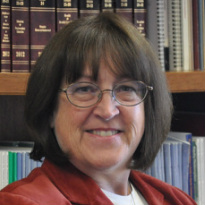
Linda Phillips
Attorney, Phillips Law Offices LLC
[email protected]
Linda Phillips is an attorney at Phillips Law Offices LLC, based in Denver, Colorado. The firm represents small to medium-sized businesses, with a strong emphasis on all types of cooperatives, including worker cooperatives. Her work includes business formations, business planning and general counsel for the cooperative community. Linda is on the Board of Directors of the Rocky Mountain Employee Ownership Center and has helped the organization grow and focus its efforts on employee ownership as a viable alternative to today's corporate culture. Linda wrote an article: "Worker Cooperatives, Their Time Has Arrived", which can be found in the Colorado Bar Association magazine, The Colorado Lawyer, in the September, 2011 issue.
Attorney, Phillips Law Offices LLC
[email protected]
Linda Phillips is an attorney at Phillips Law Offices LLC, based in Denver, Colorado. The firm represents small to medium-sized businesses, with a strong emphasis on all types of cooperatives, including worker cooperatives. Her work includes business formations, business planning and general counsel for the cooperative community. Linda is on the Board of Directors of the Rocky Mountain Employee Ownership Center and has helped the organization grow and focus its efforts on employee ownership as a viable alternative to today's corporate culture. Linda wrote an article: "Worker Cooperatives, Their Time Has Arrived", which can be found in the Colorado Bar Association magazine, The Colorado Lawyer, in the September, 2011 issue.
Site Visits
Revision International
http://revisioninternational.org/
Revision International is a Denver-based non-profit organization that works with low-income families to build self-sufficient, healthy, and sustainable communities by developing community food systems, cultivating resident-leaders, and building a local economy.
Founded in 2007 by Joseph Teipel and Eric Kornacki, Revision launched its first program, Re:farm Denver, to address the lack of affordable and accessible healthy food in low-income communities by converting household yards into organic vegetable gardens. The Re:farm model was designed to empower low-income families and vulnerable communities to overcome the barriers to growing food - namely resources and knowledge - and to use food as a spark to ignite wider economic and community development. Revision first initiated the Re:Farm program in the Westwood neighborhood, located in southwest Denver, which is a food desert and one of the city’s poorest and most at-risk neighborhoods.
The Re:farm program now has over 203 gardens that employ nine promotoras – local residents who are trained in community health, outreach and urban agriculture. Promotoras work with each family over the course of the growing season to maximize production and help the family learn how to cook and eat food from the garden. In 2012, with support from the Denver Foundation, Revision secured a land-use agreement, converting a vacant lot into an urban farm with an off-grid solar-powered irrigation system, major soil amendments, and several high-tunnel hoop houses for a group of refugees from Somalia.
Currently, Revision is in the process of starting the Westwood Food Cooperative (WFC), a member-owned food cooperative that purchases produce from both household gardeners and Revision's urban farms. At the end of the year, if the co-op is profitable, equity or dividends will be distributed to each member based on their contributions to the cooperative. The intent is to create a vertically integrated community food system by having the cooperative aggregate, market, process and distribute food that is being grown in the community. Ultimately, the goal is for the WFC to include an urban food hub & marketplace, providing a community-owned and operated food hub/commissary kitchen and grocery store. To that end, Revision is in the process of investing in the infrastructure needed to support: 1) Increased food production through backyard gardens, urban farms, and greenhouses; 2) A community-owned business called the Westwood Food Cooperative; 3) Developing a Food Hub/Commissary kitchen with a 2500 ft2 commercial kitchen and 1000 ft2 food storage; 4) Launching Denver’s first community-owned neighborhood grocery store/Mercado featuring 4000 ft2 of indoor retail space and an outdoor plaza Mercado for food vendor stalls.
The aim is to build a vertically integrated, healthy local food system for marginalized communities, and to have it ultimately owned by a community cooperative, including both Latino and Somali families as owners. The challenges of this will be discussed on our site visit in Denver.
The Learning/Action Lab will meet with Revision founder, Eric Kornacki, at the Denver Indian Center to learn about Revision’s work. We will tour Revision’s offices and educational kitchen, tour their urban farm, and visit with families that have participated in the Re:farm initiative. We will also talk with Bill Stevenson of the Rocky Mountain Farmers Union who is working with Revision and the Denver Foundation to start a cooperative development center in Denver.
http://revisioninternational.org/
Revision International is a Denver-based non-profit organization that works with low-income families to build self-sufficient, healthy, and sustainable communities by developing community food systems, cultivating resident-leaders, and building a local economy.
Founded in 2007 by Joseph Teipel and Eric Kornacki, Revision launched its first program, Re:farm Denver, to address the lack of affordable and accessible healthy food in low-income communities by converting household yards into organic vegetable gardens. The Re:farm model was designed to empower low-income families and vulnerable communities to overcome the barriers to growing food - namely resources and knowledge - and to use food as a spark to ignite wider economic and community development. Revision first initiated the Re:Farm program in the Westwood neighborhood, located in southwest Denver, which is a food desert and one of the city’s poorest and most at-risk neighborhoods.
The Re:farm program now has over 203 gardens that employ nine promotoras – local residents who are trained in community health, outreach and urban agriculture. Promotoras work with each family over the course of the growing season to maximize production and help the family learn how to cook and eat food from the garden. In 2012, with support from the Denver Foundation, Revision secured a land-use agreement, converting a vacant lot into an urban farm with an off-grid solar-powered irrigation system, major soil amendments, and several high-tunnel hoop houses for a group of refugees from Somalia.
Currently, Revision is in the process of starting the Westwood Food Cooperative (WFC), a member-owned food cooperative that purchases produce from both household gardeners and Revision's urban farms. At the end of the year, if the co-op is profitable, equity or dividends will be distributed to each member based on their contributions to the cooperative. The intent is to create a vertically integrated community food system by having the cooperative aggregate, market, process and distribute food that is being grown in the community. Ultimately, the goal is for the WFC to include an urban food hub & marketplace, providing a community-owned and operated food hub/commissary kitchen and grocery store. To that end, Revision is in the process of investing in the infrastructure needed to support: 1) Increased food production through backyard gardens, urban farms, and greenhouses; 2) A community-owned business called the Westwood Food Cooperative; 3) Developing a Food Hub/Commissary kitchen with a 2500 ft2 commercial kitchen and 1000 ft2 food storage; 4) Launching Denver’s first community-owned neighborhood grocery store/Mercado featuring 4000 ft2 of indoor retail space and an outdoor plaza Mercado for food vendor stalls.
The aim is to build a vertically integrated, healthy local food system for marginalized communities, and to have it ultimately owned by a community cooperative, including both Latino and Somali families as owners. The challenges of this will be discussed on our site visit in Denver.
The Learning/Action Lab will meet with Revision founder, Eric Kornacki, at the Denver Indian Center to learn about Revision’s work. We will tour Revision’s offices and educational kitchen, tour their urban farm, and visit with families that have participated in the Re:farm initiative. We will also talk with Bill Stevenson of the Rocky Mountain Farmers Union who is working with Revision and the Denver Foundation to start a cooperative development center in Denver.
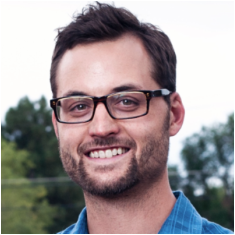
Eric Kornacki
Executive Director & Co-Founder, Revision International
[email protected]
Throughout his career, Eric has worked on issues of social justice, particularly at the intersection of economics, environment, health and food. Eric was appointed to the Denver Sustainable Food Policy Council in 2010 by former Denver Mayor John Hickenlooper to develop policy recommendations that will create a healthier and stronger local food system. Eric is passionate about raising awareness about food security in low-income communities, and also supporting rural farmers and ranchers for their role in producing healthy, quality food for all Americans. He was selected as a Fellow at the Rocky Mountain Farmers Union in 2011\2012 for its Agriculture Fellowship Program, is a graduate of the National Farmers Union Beginning Farmer Institute, and now serves as the President of the Denver/Jefferson chapter of Rocky Mountain Farmers Union. He continues to work on public policy to help beginning farmers overcome barriers to land access and capital. He is also a cooperative development consultant for Rocky Mountain Farmers Union and is currently working on his Cooperative Development certification from CooperationWorks. While working at a fair trade, independent coffee roaster in college, Eric was first exposed to the cooperative model. He wrote his economic thesis on the impact of fair trade coffee cooperatives in Nicaragua. During the same time period, he also traveled to Costa Rica where he worked on a sustainable agriculture farm, and saw first hand the damage that monoculture production agriculture wrecked on the land and on people. Eric is a native Coloradan and holds a Bachelor of Arts in Economics from the University of Denver. In his spare time, he brews incredible beer with his brother, and is slowly remodeling a 100 year old house.
Executive Director & Co-Founder, Revision International
[email protected]
Throughout his career, Eric has worked on issues of social justice, particularly at the intersection of economics, environment, health and food. Eric was appointed to the Denver Sustainable Food Policy Council in 2010 by former Denver Mayor John Hickenlooper to develop policy recommendations that will create a healthier and stronger local food system. Eric is passionate about raising awareness about food security in low-income communities, and also supporting rural farmers and ranchers for their role in producing healthy, quality food for all Americans. He was selected as a Fellow at the Rocky Mountain Farmers Union in 2011\2012 for its Agriculture Fellowship Program, is a graduate of the National Farmers Union Beginning Farmer Institute, and now serves as the President of the Denver/Jefferson chapter of Rocky Mountain Farmers Union. He continues to work on public policy to help beginning farmers overcome barriers to land access and capital. He is also a cooperative development consultant for Rocky Mountain Farmers Union and is currently working on his Cooperative Development certification from CooperationWorks. While working at a fair trade, independent coffee roaster in college, Eric was first exposed to the cooperative model. He wrote his economic thesis on the impact of fair trade coffee cooperatives in Nicaragua. During the same time period, he also traveled to Costa Rica where he worked on a sustainable agriculture farm, and saw first hand the damage that monoculture production agriculture wrecked on the land and on people. Eric is a native Coloradan and holds a Bachelor of Arts in Economics from the University of Denver. In his spare time, he brews incredible beer with his brother, and is slowly remodeling a 100 year old house.
Denver Indian Center
http://www.denverindiancenter.org/
Established in 1983, The Denver Indian Center’s mission is “to empower our youth, families and community through self-determination, cultural identity and education.” The Center serves a diverse group of tribal communities living in the city of Denver, the majority of which represent the Southwest and the Northern and Southern Plains. Most come to the Center seeking economic stability, education and security for their families – through the Center’s Native workforce program, native youth programs, and Indian entrepreneurship programs. The Center also hosts powwows and runs a community foodbank. The Denver Indian Center is a member of the National Urban Indian Family Coalition (NUIFC) based in Seattle, WA, a network of urban American Indian Organizations that reinforces cultural identity, education, and healthy families and works to bridge the gap between tribal governments and other American Indian institutions with the ultimate goal of broadening access to resources for American Indians.
While at the Denver Indian Center, Learning/Action Lab participants will meet with Executive Director Jay Grimm, along with other key staff members, learn about their workforce and entrepreneurship development programs and take a tour of their facility which includes a renovated 30,000 square foot former school building, the Denver Indian Family Resource Center, and rehabbed affordable rental apartments.
http://www.denverindiancenter.org/
Established in 1983, The Denver Indian Center’s mission is “to empower our youth, families and community through self-determination, cultural identity and education.” The Center serves a diverse group of tribal communities living in the city of Denver, the majority of which represent the Southwest and the Northern and Southern Plains. Most come to the Center seeking economic stability, education and security for their families – through the Center’s Native workforce program, native youth programs, and Indian entrepreneurship programs. The Center also hosts powwows and runs a community foodbank. The Denver Indian Center is a member of the National Urban Indian Family Coalition (NUIFC) based in Seattle, WA, a network of urban American Indian Organizations that reinforces cultural identity, education, and healthy families and works to bridge the gap between tribal governments and other American Indian institutions with the ultimate goal of broadening access to resources for American Indians.
While at the Denver Indian Center, Learning/Action Lab participants will meet with Executive Director Jay Grimm, along with other key staff members, learn about their workforce and entrepreneurship development programs and take a tour of their facility which includes a renovated 30,000 square foot former school building, the Denver Indian Family Resource Center, and rehabbed affordable rental apartments.
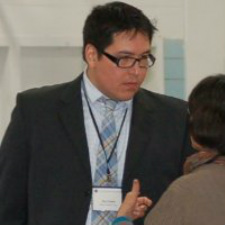
Jay Grimm
Executive Director, Denver Indian Center
[email protected]
Jay Grimm is a Colorado Native and Member of the Navajo Nation. Jay became the Executive Director of the Denver Indian Center, Inc in 2008. Jay has worked for Casey Family Programs, JVA Consulting, and the National Indian Health Board in Washington D.C. Jay’s career has been focused in nonprofit development, governance, community engagement and resource development. Jay currently is a member of the Denver Indian Family Resource Center and BUCU West (Morrison Road Business Association) Board of Directors and Rocky Mountain PBS/KUVO Advisory Board. Jay has a B.A. in English from Metropolitan State University of Denver, and in 2009 received the Livingston Fellowship Award from the Bonfils-Stanton Foundation. The Fellowship has allowed Jay to attend executive education at Harvard and MIT, study effective models, and learn from a variety of leaders across the country.
Executive Director, Denver Indian Center
[email protected]
Jay Grimm is a Colorado Native and Member of the Navajo Nation. Jay became the Executive Director of the Denver Indian Center, Inc in 2008. Jay has worked for Casey Family Programs, JVA Consulting, and the National Indian Health Board in Washington D.C. Jay’s career has been focused in nonprofit development, governance, community engagement and resource development. Jay currently is a member of the Denver Indian Family Resource Center and BUCU West (Morrison Road Business Association) Board of Directors and Rocky Mountain PBS/KUVO Advisory Board. Jay has a B.A. in English from Metropolitan State University of Denver, and in 2009 received the Livingston Fellowship Award from the Bonfils-Stanton Foundation. The Fellowship has allowed Jay to attend executive education at Harvard and MIT, study effective models, and learn from a variety of leaders across the country.

